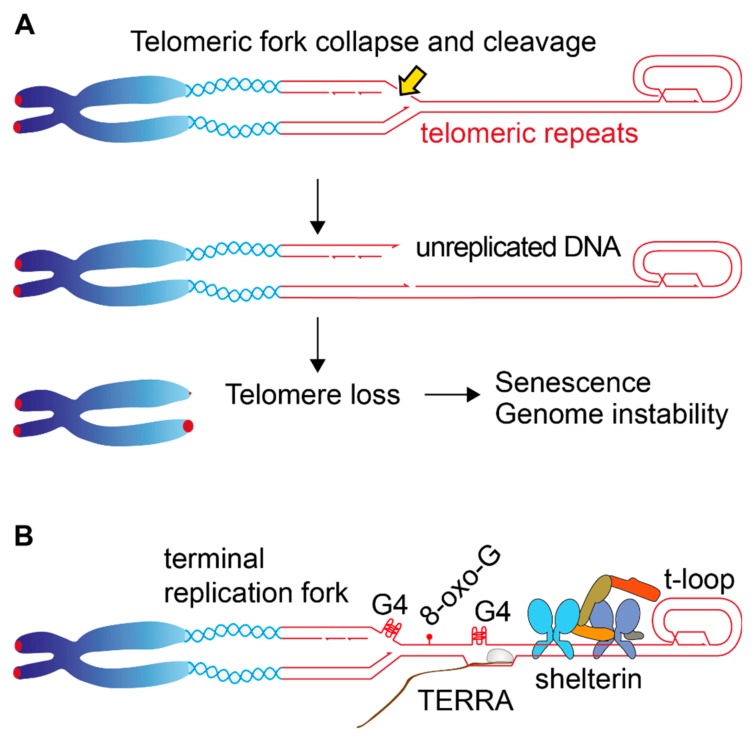In addition to gradual telomere shortening during cell division, the loss of telomere function can also occur due to stochastic events in which large blocks of telomeric repeat sequences are lost in a single rapid deletion event. In plants, telomeric DNA sequences are essential for chromosome end protection, replication, and cell growth and development regulation. However, under certain stressful conditions, these critical telomeric DNA sequences can be lost, i.e., telomere depletion, leading to genomic instability.
 Fig. 1 Telomere loss due to replication problems. (Doksani Y., 2019)
Fig. 1 Telomere loss due to replication problems. (Doksani Y., 2019)
As a leading company in biological research, Lifeasible is equipped with state-of-the-art facilities and a team of highly experienced researchers. We have extensive expertise in studying plant telomeric DNA sequences and their response to stress conditions.
Lifeasible utilizes appropriate molecular techniques to investigate the level of telomeric DNA sequence loss under different stress conditions, such as drought, heat, and pathogen infection. One commonly used method is fluorescence in situ hybridization (FISH), which allows the visualization and quantification of telomeric DNA sequences directly on chromosomes. By comparing stressed and non-stressed plant samples, we can assess the extent of telomeric DNA sequence loss and identify any stress-dependent patterns.
We help our customers understand the mechanisms underlying stress-induced loss of plant telomeric DNA sequences. One potential mechanism involves telomerase activation, an enzyme responsible for telomere length maintenance. Telomerase activity can be upregulated under stress conditions, leading to increased telomeric DNA synthesis and potential loss due to incomplete replication processes. Additionally, stress-dependent alterations in chromatin structure and epigenetic modifications can also affect telomeric DNA stability.
With our expertise and state-of-the-art equipment, Lifeasible provides valuable insights and solutions for telomere biology. Our researchers stay up-to-date with the latest scientific advancements, ensuring that our analyses and interpretations are based on the most current knowledge in the field. If you are interested in our services or have some questions, please feel free to contact us or make an online inquiry.
Reference
Lifeasible has established a one-stop service platform for plants. In addition to obtaining customized solutions for plant genetic engineering, customers can also conduct follow-up analysis and research on plants through our analysis platform. The analytical services we provide include but are not limited to the following:
STU-CRISPR System Improves Plant Genome Editing Efficiency
April 19, 2024
Application of Exosomes in Facial Beauty
April 12, 2024